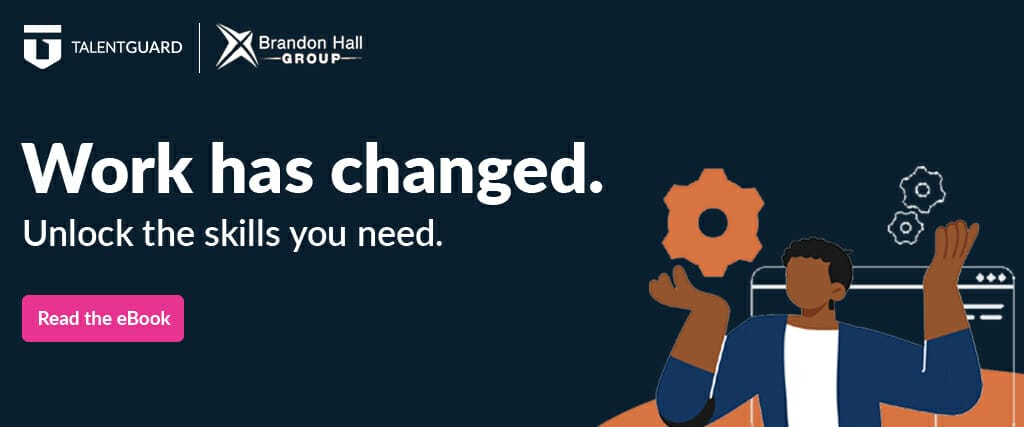How HR Can Best Support Employee Development

Investing in employee development has always been important, but it is becoming increasingly crucial in today’s rapidly changing business environment. As the world becomes more interconnected and technology advances at a rapid pace, companies are facing a growing talent deficit and are looking for ways to bridge the gap. Not only are companies hard pressed to find high-demand skills in the talent market, research from McKinsey shows that two out of five employees report thinking about leaving their job in the next three to six months. One solution to this is to focus on developing the skills of their existing workforce. By providing employees with the training and resources they need to grow and advance in their careers, companies can not only improve productivity and retention, but also position themselves for future success. HR plays a crucial role in supporting employee development initiatives, as they are responsible for identifying and addressing the training needs of the workforce. HR can help employees acquire the skills they need to thrive in their roles and contribute to the overall success of the organization. In the long run, investing in employee development benefits both the individual and the company, as it helps to create a culture of continuous learning and growth. Today, we will discuss the importance of investing in development, explore the role HR plays in growth and advancement of employees as well as how they can best support the process.
The Importance of Developing Employees
Developing employees is crucial for the success of any organization. Investing in employee development not only leads to increased productivity, but also improved retention and a positive company culture. According to Pew Research, a top reason employees stated for leaving their jobs is a lack of career development. Additionally, with the rapid pace of technological change and the increasing demand for new skills, reskilling and upskilling have become essential in the future of work. By providing ongoing opportunities for employees to learn and grow, companies can not only stay competitive, but also attract top talent. Investing in employee development is a key factor in driving long-term success.
How HR Can Help Support Employee Development
As the department responsible for managing and supporting the growth of employees, HR plays a crucial role in ensuring that employee development initiatives are successful. There are several key responsibilities that HR should focus on in order to support the employee development process.
First, HR must identify the training needs of the workforce. This may involve conducting skills assessments, analyzing job performance data, or soliciting feedback from employees and managers. From these processes, HR can begin to understand the skills that employees currently hold and identify where skill gaps lie. Once skill gaps have been identified, HR can then create individual development plans that will help close them. This includes outlining specific goals, resources, and timelines for each employee. This can also be supporting with providing access to learning and development opportunities such as workshops, online courses, or mentorship programs.
In addition to supporting individual employees, HR can also help identify employees with the potential to move into higher roles and provide them with the necessary support and resources to do so. This may involve creating career development plans, providing leadership training, or offering opportunities for cross-functional exposure.
Finally, HR should provide ongoing support and guidance to employees throughout the development process. This may involve helping employees set and track progress towards development goals, providing coaching and feedback, or connecting employees with resources and support when needed. By successfully leading and managing the employee development process, HR can help create a culture of continuous learning and growth.
Maximizing Success with Technology
Managing employee development initiatives can be a complex and time-consuming task, especially for those who are responsible for a large number of employees. This is where talent management and development software can be extremely helpful. Development software is designed to assist HR with tasks such as creating development plans, tracking progress, providing feedback and coaching, and managing employee data and records. By using development software, HR can streamline and automate many of the tasks associated with employee development, freeing up time to focus on more strategic initiatives.
In addition to saving time and increasing efficiency, utilizing software can also provide HR with valuable insights and analytics. By tracking employee development progress and analyzing data, HR can gain a better understanding of the effectiveness of their employee development efforts and identify areas for improvement. This can help HR tailor their development initiatives to the specific needs of their workforce and ensure that they are maximizing the impact of their efforts.
Overall, development software is a valuable tool for HR managers who are looking to support the growth and development of their employees in a more efficient and effective way. By streamlining and automating many of the tasks associated with employee development, HR can provide better support to employees as they grow and develop in their careers.
In conclusion, investing in employee development is a key factor in driving long-term success for any organization. According to Gallup, organizations that invest in employee development are twice as likely to retain their employees and see an 11% increase in profitability. By providing ongoing opportunities for learning and growth, companies can improve productivity, retention, and culture, while also positioning themselves for success in the future. HR plays a crucial role in supporting employee development initiatives, and by working together, HR and employees can create a culture of continuous learning and growth that benefits both the individual and the organization.
Top HR Trends to Prepare for in 2023
The last two years have posed specific challenges for those who work in HR, mostly due to the pandemic. Businesses have had to learn how to operate successfully with fewer employees. Positions that were once fully staffed became vacant. Even the way organizations did business drastically shifted. And once the crisis was over, worker shortages […]
The Benefits of Internal Talent Pools
In recent years, a well-executed talent management strategy has been regarded as an important foundation for achieving employee and business success. However, with the world of work experiencing such high-speed changes in recent years, businesses need to review their processes and account for the increased need to support rapid change. Being best prepared for the […]
How to Prepare Managers for Upskilling
To meet the challenges of digital transformation, changing market demands, and talent shortages, organizations must prepare managers for upskilling as both leaders and learners. By equipping them with the tools, knowledge, and strategies needed to develop their teams effectively, businesses can foster a culture of continuous learning and innovation, ensuring long-term success in a competitive […]




